Ever get hit with a gross, musty smell coming from your shower drain? It totally kills the vibe of what should be a nice, relaxing shower, right? That stinky smell is usually from stuff like soap scum, hair, or even bacteria building up in the drain. It can range from a little annoying to downright unbearable, and trust me, no one wants to deal with that while they're trying to get clean.
So, what’s going on? Most of the time, it’s a plumbing issue, and figuring out what’s causing it is the first step to fixing it. Let’s take a look at why this happens and how you can get rid of that smell once and for all.
What You Need to Eliminate Causes of Shower Drain Smell
- Drain cleaner: Look for a drain cleaner specifically designed to break down organic matter, such as hair, soap scum, and bacteria.
- Plunger: Use a plunger to create pressure and dislodge clogs within the drain pipe.
- Plumbing snake: This tool is useful for clearing stubborn clogs deep within the drain pipe. It consists of a long, flexible cable that can be inserted into the pipe and rotated to break up or retrieve blockages.
- Rubber gloves: When working with drain cleaning chemicals or handling dirty pipes, it’s essential to protect your hands with rubber gloves to maintain hygiene and prevent skin irritation.
- Bucket: Having a bucket nearby is useful for collecting water or debris that may need to be removed during the cleaning process.
- Adjustable wrench: This tool is handy for disconnecting and reattaching drain components if necessary.
- Cleaning pipe brush: A brush with stiff bristles is used to scrub the inside of the drain pipe, removing any buildup or residue that may be causing the odor.
Causes of a Smelly Shower Drain and Methods of Elimination
1. Bacteria Buildup and Biofilm Formation
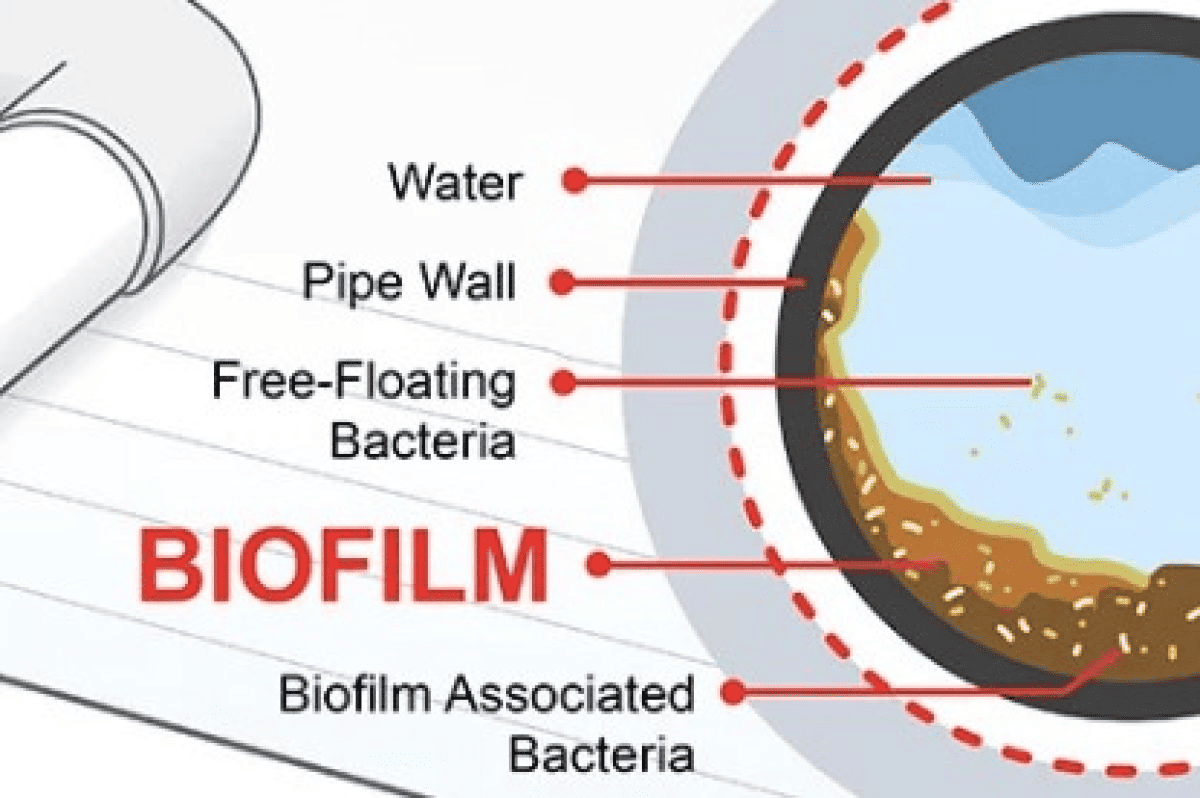
Image Credits: hotwaterdrx.com
One big reason your shower drain might stink is because of bacteria and biofilm buildup. When water sits still in the drain, it creates the perfect environment for bacteria to grow. Over time, these bacteria form a slimy layer (biofilm) on the walls of the drain. This not only causes the bad smell but also gives the bacteria a cozy place to hang out and multiply, making the odor worse.
Method of Elimination: Scrub and Disinfect to get Rid of Biofilm
If that biofilm smell’s been keeping you from stepping into the shower, here's what to do. First, grab a brush and scrub the area to break up the biofilm. Wipe away as much as you can. After that, spray the spot with an antibacterial disinfectant to kill the bacteria.
Now, cleaning biofilm out of a drain can be tricky. It’s not just the drain line; you might also need to clean the tiles around it. Instead of just a brush, try using a paint roller cover. It's long and skinny, perfect for getting into the drain.
Put some cleaning solution on the roller, slide it into the drain, and rotate it to loosen up the biofilm. Keep pulling it out, washing it in soapy hot water, and then pushing it back in to make sure you get every last bit.
That should help get rid of that nasty drain smell!
2. Clogged Drains and Trapped Debris
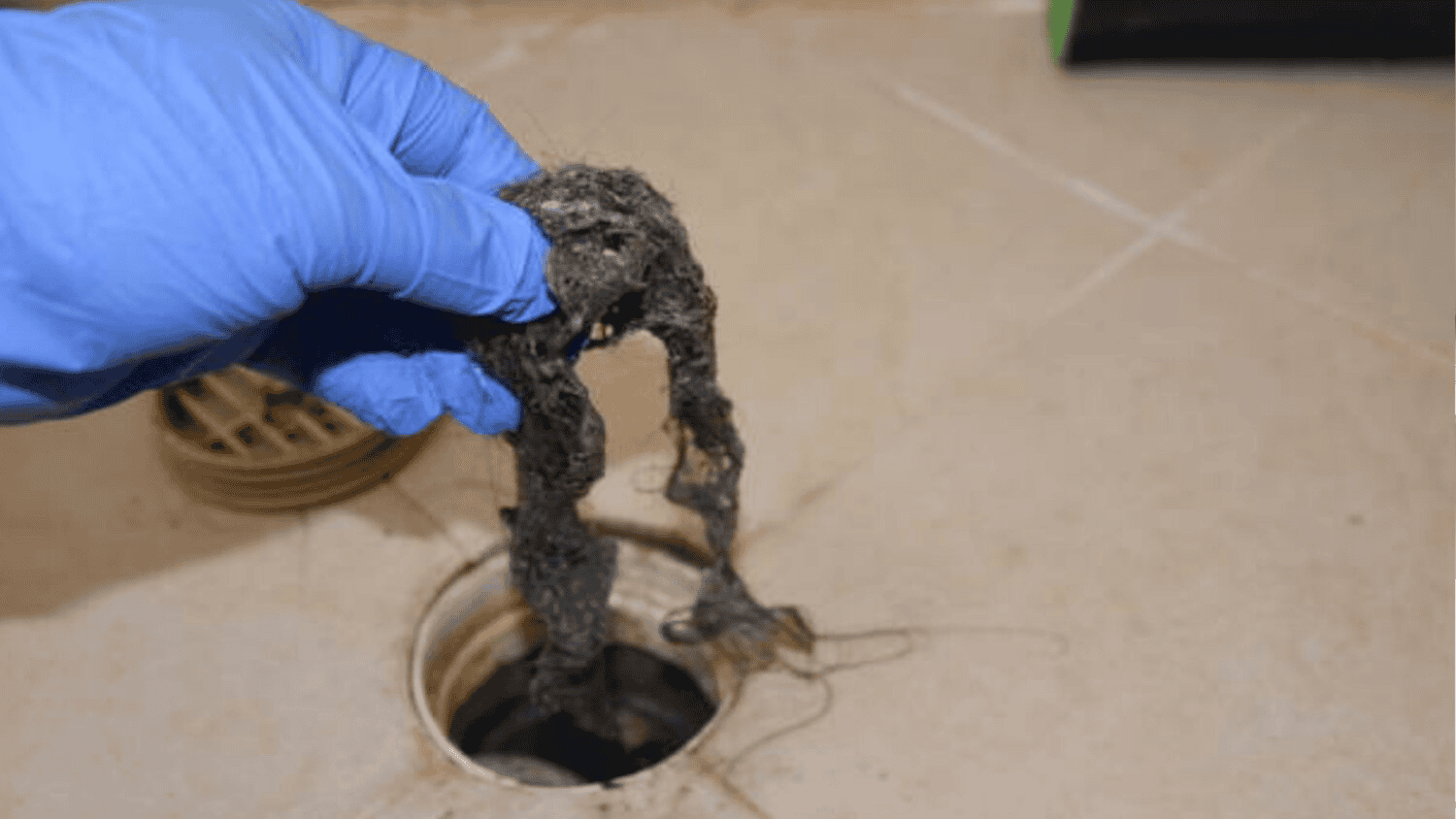
Image Credits: jabplumbingsolutions.com.au
Another significant cause of shower drain smell is the presence of clogs and trapped debris. Hair, soap scum, and other food particles can accumulate in the drain over time, obstructing water flow. As these materials decompose, they release a foul odor that permeates the bathroom.
Additionally, the clogged drain becomes an ideal environment for bacteria to thrive, further intensifying the odor problem. It is crucial to address clogs using a shower drain hair catcher and remove trapped debris to eliminate the source of the unpleasant smell and restore proper water flow.
Method of Elimination: Clean and Unclog Shower drain
If a clogged drain is the reason for an unpleasant smell in your bathroom, then there are a few techniques to try to clear the clog in the drain.
The first technique involves physically removing or dislodging the clog by inserting a plumber’s drain snake into the shower drain if you’re trying to remove the clog, ensure the drain snake has a hooked end to hold onto the trapped hair and debris, but if you’re trying to break up the blockage, it’s preferable to invest in a drain snake with an auger mechanism that can bite into and through the clog using rotational force.
Secondly, you can pour boiling water down the drain to try dissolve any oils that are causing the clog. Chemical cleaners can also achieve the same results, though they can damage and harm the drain line. If you decide to use chemical drain cleaners, read and adhere to the manufacturer’s instructions for optimal results.
3. Sewer Line Problems and Sewer Gas Intrusion
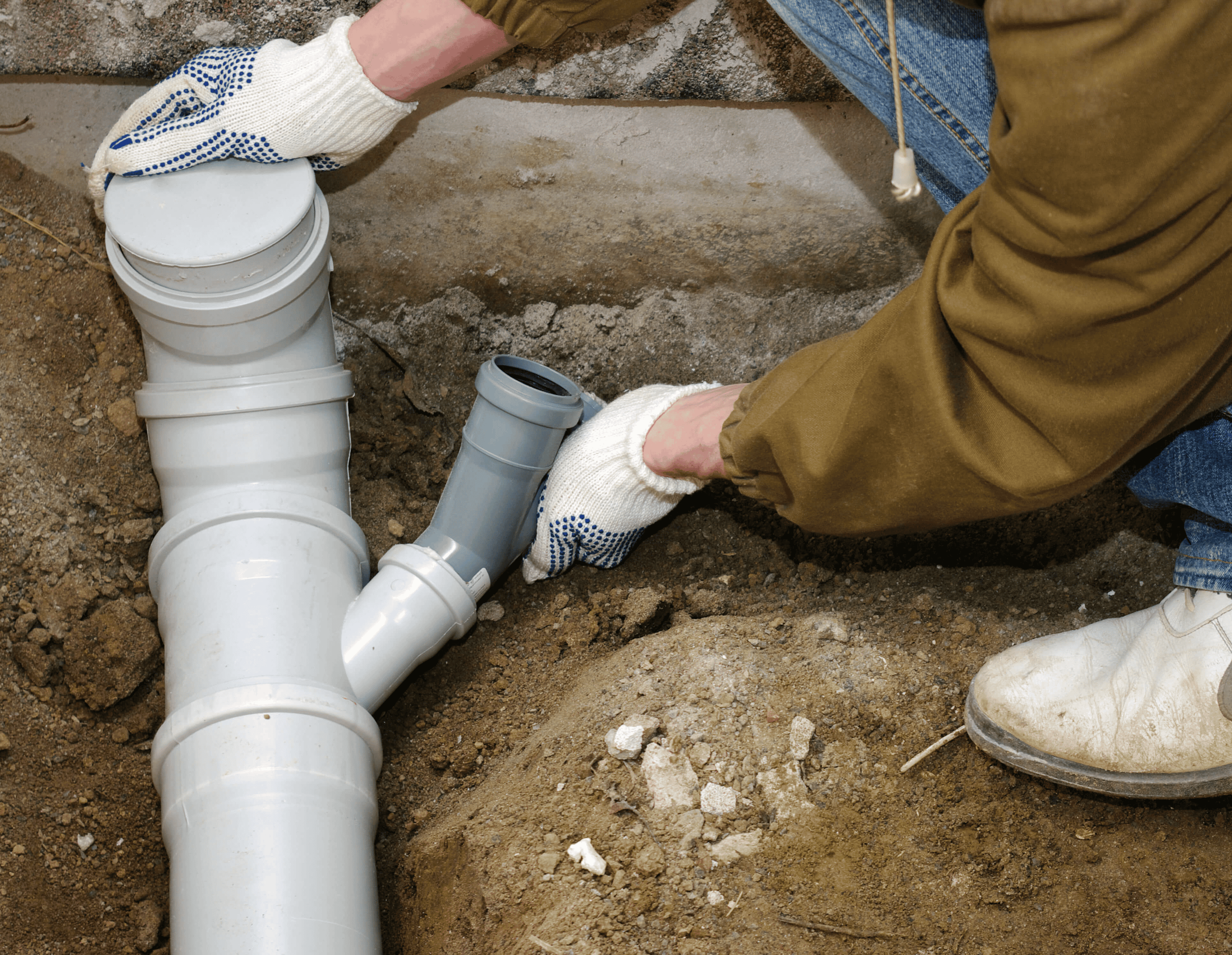
Image Credits: milltownplumbing.com
Sewer line issues can also contribute to shower drain smells. Cracks, leakages, blockages, or damaged sewer pipes can allow sewer gas to infiltrate the bathroom. Sewer gas contains hydrogen sulfide, which has a distinct and unpleasant rotten egg smell.
A severe problem that can result from a leaking drain line is the sewage smell coming up from the drain or even penetrating through the walls and into the bathroom.
To leave the house, the wastewater and waste from the shower must flow down and into the main drain. There is a good chance that if the drain line leaks, the sewage will seep into the neighborhood and soak the insulation as well as the interior of the walls and flooring.
Identifying and addressing sewer line problems is crucial to eliminating the odor’s source and restoring a pleasant showering experience.
Method of Elimination: Repair Leaking drain pipes
A cracked or leaking drain pipe is one of the most irritating root causes of unpleasant shower drain smells in the bathroom. Identifying the leak is challenging because your drain pipes are normally buried beneath the walls and floor. Leaks frequently occur near joints or connections. This means that in order to access the damaged section of the drain line, you might need to pry open the bathroom’s walls or floor.
Since the leaking wastewater may result in water damage, rot, and unchecked mold growth, you will also need to take care of any problems with the nearby insulation, drywall, tiling, and other infrastructure. To find the leak, repair the plumbing line, and advise on the best course of action, it is advised to employ an experienced plumber due to the intricacy of the task.
4. Dirty or Dry P- trap
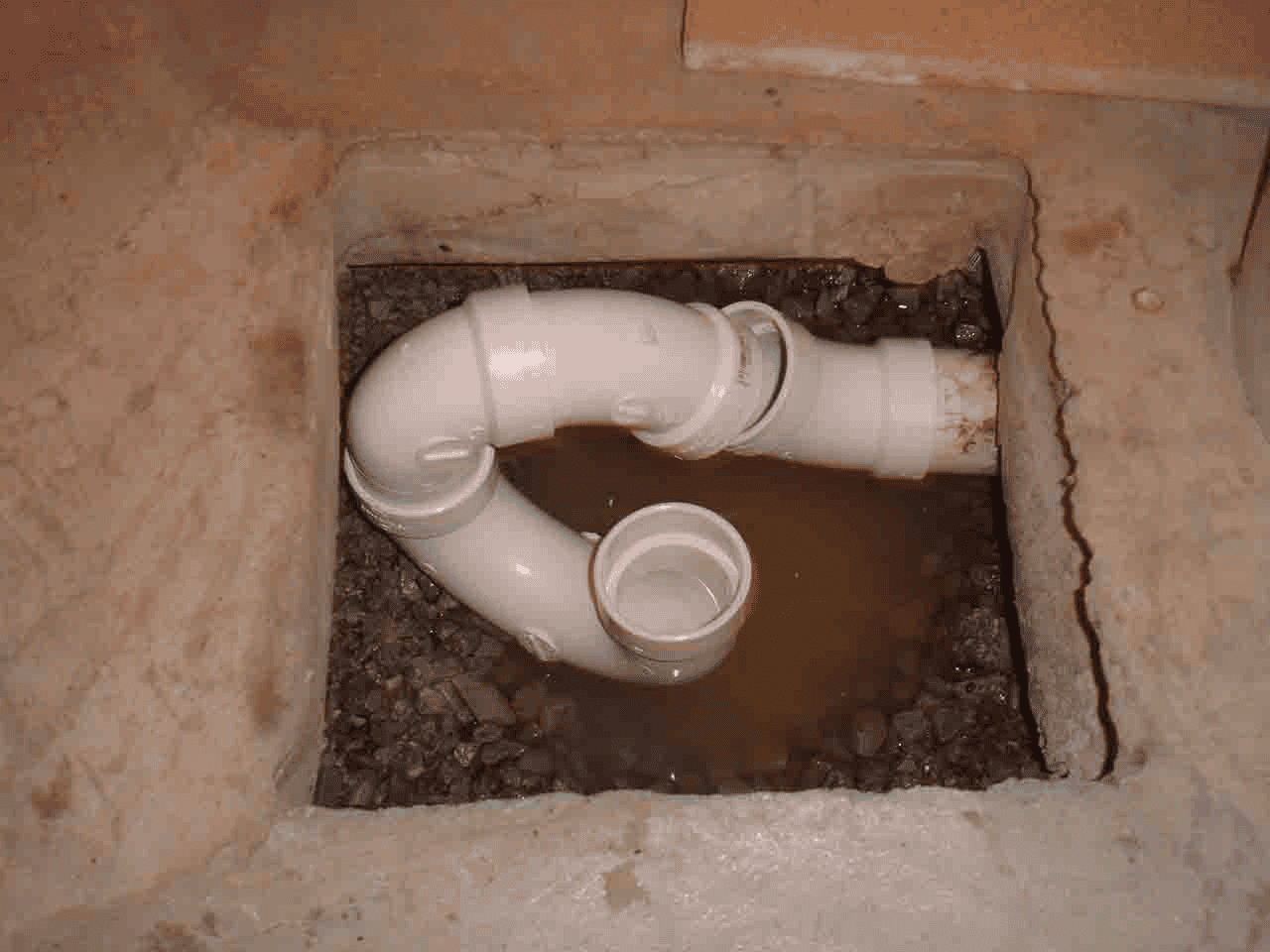
Image Credits: terrylove.com
A dry P-trap refers to a plumbing component called a P-trap that has lost its water seal, causing it to become dry. A P-trap is a U-shaped pipe that is commonly found underneath the shower. It is designed to prevent sewer gases from entering the living space by creating a water barrier that acts as a seal.
When a P-trap becomes dry due to infrequent use or a plumbing issue, the water barrier is lost, and sewer gases can pass through the open pipe. This can result in unpleasant odors spreading into the room where the fixture is located.
But other issues could cause the shower drain to smell like sewage and a dirty P-trap. If the P-trap is dry, there may be a blockage in the ventilation line. When the P-trap is dry, the shower drain can freely expel smells from the drain line.
Method of Elimination: Sanitize and Clean Shower P traps
A dry p trap is easy to clean and sanitize to eliminate the smelly shower drain. If you are worried about using harsh chemicals in your plumbing lines, you may want to attempt an alternative approach which is a home remedy, before utilizing chemical cleaners to remove any dirt and grime stuck inside the P-trap.
Pour a cup of baking soda into the drain and another cup of distilled white vinegar. After, cover the drain with a stopper and let the chemical reaction occur. This should eliminate any bacteria responsible for unpleasant odors and clear out any filth or debris that has adhered to the interior of the drain lines, leaving your drain smelling fresh.
If a dry P-trap is the problem, a broken, clogged, or blocked vent pipe is probably the cause, and this can be beyond DIYers. So it is recommended to contact a professional plumber to solve the issue.
Preventive Measures for Odor-Free Shower Drains
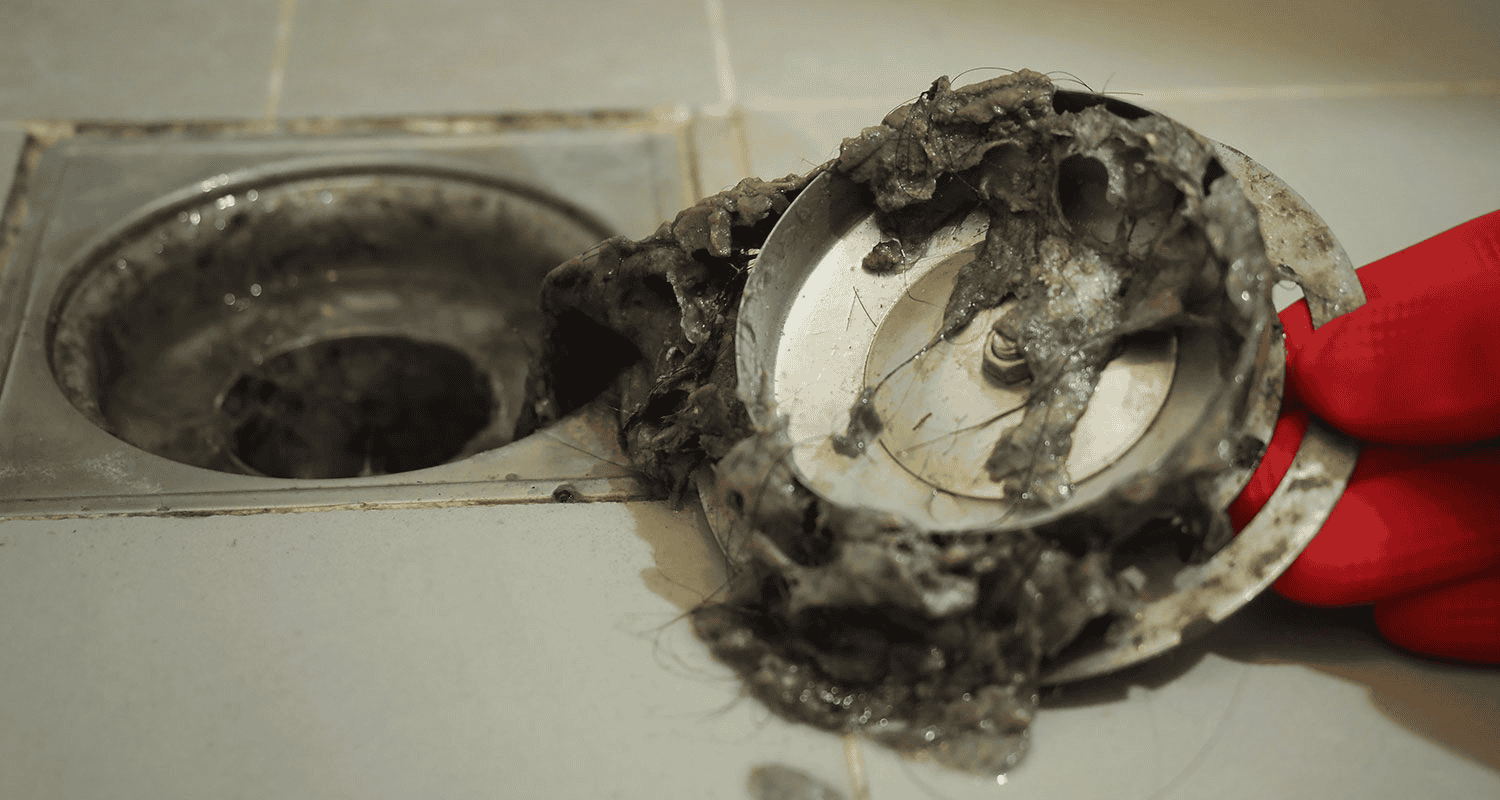
Image Credits: chamblissplumbing.com
1. Regular Cleaning and Maintenance Routines
A little regular TLC goes a long way with your drains. One trick you can try is flushing the drain with hot water, vinegar, and baking soda. The hot water helps break up stuff that's stuck, while the vinegar and baking soda team up to break down the gunk and eliminate those odors. It’s a simple, cheap way to keep your drain smelling fresh.
Also, don’t forget to grab a drain brush or pipe cleaner now and then. Hair tends to sneak in there and cause all sorts of problems. Just a quick clean can save you from those gross clogs and smells that make you want to avoid the shower altogether.
2. Proper Disposal of Hygiene Products
We all know the temptation to flush a cotton swab or wipe, but trust me—it's a recipe for disaster. These things don’t break down, and they’ll just sit in your pipes, blocking stuff up and stinking the place out. The trick? Toss them in a waste bin, not the drain. Taking that extra step will save you from dealing with the fallout later.
3. Installing Drain Cover and Trap
You can really cut down on clogs and odors with simple drain covers or traps. These little guys, usually made of metal or plastic, catch bigger debris like hair before it gets stuck in your pipes. And if you add a trap or filter, you'll stop even the smallest particles from building up. It’s a smart move to keep your drains cleaner and odor-free in the long run.
When to Hire a Professional
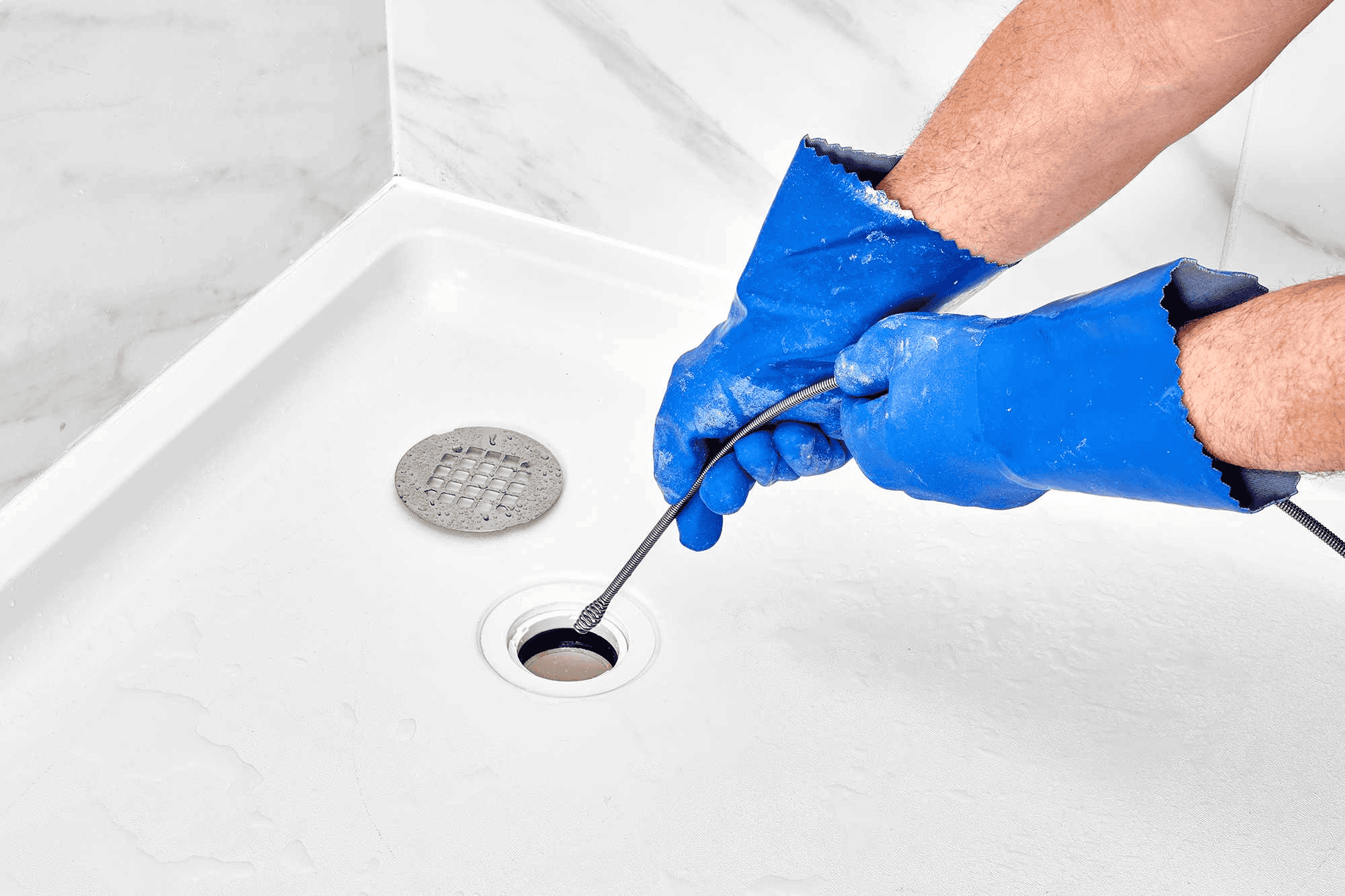
Image Credits: thespruce.com
There’s a point where DIY just won’t cut it. If you’ve scrubbed away, tried every hack, and the smell won’t budge—or it somehow gets worse—it's probably a sign that something more serious is lurking in the pipes. This is when you’ll want to call in a professional plumber who knows their stuff. They’ve got the tools and the know-how to get to the root of the problem.
Also, if you’re seeing slow drains, constant backups, or hearing odd pipe noises, it might be a bigger plumbing issue at play. Those little clues are usually a red flag that needs professional attention.
And hey, if you're scratching your head about what’s causing the smell or just don’t want to risk making things worse, hiring a plumber is a good call. They’ll figure out what’s up, give you advice, and take care of any repairs or maintenance. No hassle, no worries.
Conclusion on Shower Drain Smell
Tackling stinky shower drains is more than just a quick fix—it’s about making sure your bathroom stays a place of comfort. Knowing what causes the smell—whether it’s gross bacteria, blockages, or even bigger plumbing headaches—lets you tackle it head-on.
Staying on top of regular cleaning, tossing hygiene items in the trash, and using drain covers can save you from having to deal with the smell down the road. A little proactive care goes a long way, leaving you with a fresh shower that’s ready to go whenever you are.














